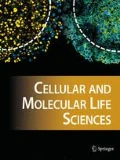Abstract.
The thyrotropin (TSH) receptor plays a preeminent role in thyroid physiology and disease. TSH, acting through the TSH receptor, is the major stimulator of thyroid cell growth, differentiation and function. In Graves' disease, the TSH receptor is the target of stimulating antibodies that cause hyperthyroidism. Although still a topic of debate, the TSH receptor has been implicated in the pathogenesis of the endocrine ophthalmopathy associated with Graves' disease. Blocking antibodies against the TSH receptor are involved in the development of hypothyroidism in a subset of patients with autoimmune hypothyroidism. Transplacental passage of stimulating or blocking TSH receptor antibodies from a mother with autoimmune thyroid disease may result in transient hyper- or hypothyroidism in early infancy. During pregnancy, the placental hormone human choriogonadotropin (hCG) can cause gestational hyperthyroidism through cross-reaction with the TSH receptor. Gestational hyperthyroidism may also be involved in the pathogenesis of hyperemesis gravidarum. Trophoblast tumors secreting hCG are a rare cause of hyperthyroidism. Somatic activating mutations of the TSH receptor have been identified as a molecular cause of toxic adenomas, whereas activating mutations in the germline give rise to nonautoimmune familial hyperthyroidism or sporadic congenital hyperthyroidism. These gain-of-function mutations are dominant, and one mutated allele is sufficient to result in disease. Inactivating germline mutations of both TSH receptor alleles lead to variable degrees of resistance to TSH, encompassing a spectrum ranging from euthyroid hyperthyrotropinemia to overt hypothyroidism with thyroid hypoplasia.
Similar content being viewed by others
Author information
Authors and Affiliations
Additional information
Received 31 January 2001; received after revision 3 April 2001; accepted 3 April 2001
Rights and permissions
About this article
Cite this article
Kopp, P. Human Genome and Diseases: Review¶The TSH receptor and its role in thyroid disease. CMLS, Cell. Mol. Life Sci. 58, 1301–1322 (2001). https://doi.org/10.1007/PL00000941
Issue Date:
DOI: https://doi.org/10.1007/PL00000941




